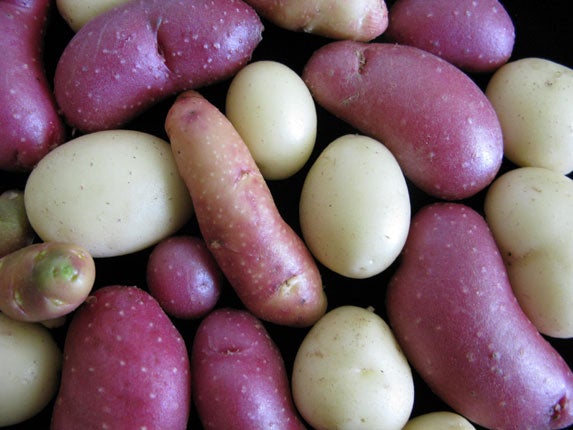Super-spuds to feed world as genetic code is cracked

Your support helps us to tell the story
From reproductive rights to climate change to Big Tech, The Independent is on the ground when the story is developing. Whether it's investigating the financials of Elon Musk's pro-Trump PAC or producing our latest documentary, 'The A Word', which shines a light on the American women fighting for reproductive rights, we know how important it is to parse out the facts from the messaging.
At such a critical moment in US history, we need reporters on the ground. Your donation allows us to keep sending journalists to speak to both sides of the story.
The Independent is trusted by Americans across the entire political spectrum. And unlike many other quality news outlets, we choose not to lock Americans out of our reporting and analysis with paywalls. We believe quality journalism should be available to everyone, paid for by those who can afford it.
Your support makes all the difference.The full genetic code of the potato plant has been deciphered by scientists who claim it will lead to the rapid development of new, disease-resistant varieties of the world's most important non-cereal food crop.
An international consortium of research organisations has successfully sequenced the 840m DNA "base pairs" that make up the 12 chromosomes of the potato genome.
The breakthrough should lead to the identification of important genes that confer resistance to potato diseases such as late blight, a fungal infection that triggered the Irish potato famine of 1845.
Currently it takes between 10 and 12 years to breed a new variety of potato by conventional breeding methods, but knowing the genome could cut the time by half and improve the end product by targetting the individual genes responsible for the desired traits, the scientists said.
"We now understand in effect the book of life of the potato, we understand the genes and we can relate that to the traits that the potato has, to improve its productivity and to reduce the impact of pests and pathogens," said Professor Ian Gordon, chief executive of the James Hutton Institute in Dundee, which took a lead role in the project.
The rice genome was completed in 2005 – the first genome of a crop plant – and a draft sequence of wheat was published last year.
Unlike cereals, however, potatoes are rich in additional nutrients such as vitamin C and folic acid and are seen as a critical crop in the effort to boost food production for a growing world population, expected to increase from 7bn to 9bn within the next 40 years.
Each year, approximately 200 million tons of potatoes are produced and consumed throughout the world, and they constitute the fourth most important staple crop after rice, wheat and maize.
Join our commenting forum
Join thought-provoking conversations, follow other Independent readers and see their replies
Comments